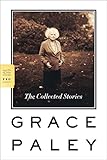I did a lot of moving this year, both literal and figurative, so it isn’t hard to see why I was drawn to reading tales of instability, of moments when the girders are buckling and the bridge won’t hold up for much longer. Sometimes, this affinity led me to pick books about traumas and disasters, but other times it led me to narratives of a generalized insecurity, be the source of that insecurity economic, social, or romantic. All I wanted to feel this year was a sense of ambient doom, it seemed, and the books I’ll remember in the future are those that delivered, and then some.
Chief among them has to be The New Me by Halle Butler, an excruciating recession fable and one of the best books I’ve read in a long time. I suppose it’s not technically a fable, as its plot is grimly realistic, but with its gimlet-eyed view of the precarity and misery of the modern workplace, it earns a spot among the classics of what we might call the Recession Era. The protagonist, Millie, is stuck in an awful temp job, and everything she does to move up or please her superiors inevitably makes it all worse. She writes polite emails, gets all her work done, and (mostly) keeps her gripes to herself, but none of it proves to be enough to keep her afloat in her position. Her struggles will prove familiar to millennials of my particular age cohort, as will the farce that plays out as she vainly attempts to keep her dignity. All her interactions with her boss are somehow both threatening and smarmy, and fairness itself is nothing more than a joke. Eventually, she has no choice but to move back home with her parents, which the book depicts with a masterful grip on her interiority. I found this book unbearably painful, and I mean that as the highest of compliments.
 I also loved reading Severance, Ling Ma’s excellent debut, which adds the tropes of zombie fiction to the microgenre of the office novel. The book switches back and forth between the recent past and the present, when the world has been wrecked by a brain-frying virus called Shen Fever. The protagonist, Candace, used to work at a Bible publisher, and most of the novel’s flashback sections focus on her time at work. It likely says a lot about me (almost none of it particularly flattering) that I found these flashbacks as thrilling as the action-packed sections in the present, partly because, like Candace, I too have spent time in a number of soul-grinding jobs. I couldn’t help but sympathize with her stubborn pride and industry, which keep her ensconced in a position that’s a little too real for comfort. Like The New Me, Severance illustrates the costs of our economic hellscape, all the while telling a genuinely new story that’s always a pleasure to read.
I also loved reading Severance, Ling Ma’s excellent debut, which adds the tropes of zombie fiction to the microgenre of the office novel. The book switches back and forth between the recent past and the present, when the world has been wrecked by a brain-frying virus called Shen Fever. The protagonist, Candace, used to work at a Bible publisher, and most of the novel’s flashback sections focus on her time at work. It likely says a lot about me (almost none of it particularly flattering) that I found these flashbacks as thrilling as the action-packed sections in the present, partly because, like Candace, I too have spent time in a number of soul-grinding jobs. I couldn’t help but sympathize with her stubborn pride and industry, which keep her ensconced in a position that’s a little too real for comfort. Like The New Me, Severance illustrates the costs of our economic hellscape, all the while telling a genuinely new story that’s always a pleasure to read.
 I also read some great short stories, some from this year, some not. I fell for “Waugh,” a heartbreaking tour-de-force by Bryan Washington and easily my favorite New Yorker story from this year. I loved “Elliott Spencer,” a new-ish George Saunders story that brings the author’s considerable skills to bear on Trumpian propaganda. I loved “Guests,” a story in The Paris Review by Mary Terrier, with its brilliantly textured portrayal of grief. And I spent a month on The Collected Stories of Grace Paley, which made me yearn for a bygone socialist community that has almost completely disappeared. All of the above were beautiful and startling, and I hope I never forget them.
I also read some great short stories, some from this year, some not. I fell for “Waugh,” a heartbreaking tour-de-force by Bryan Washington and easily my favorite New Yorker story from this year. I loved “Elliott Spencer,” a new-ish George Saunders story that brings the author’s considerable skills to bear on Trumpian propaganda. I loved “Guests,” a story in The Paris Review by Mary Terrier, with its brilliantly textured portrayal of grief. And I spent a month on The Collected Stories of Grace Paley, which made me yearn for a bygone socialist community that has almost completely disappeared. All of the above were beautiful and startling, and I hope I never forget them.
God willing, I won’t feel drawn to reading stories of doom, next year.
More from A Year in Reading 2019
Don’t miss: A Year in Reading 2018, 2017, 2016, 2015, 2014, 2013, 2012, 2011, 2010, 2009, 2008, 2007, 2006, 2005









